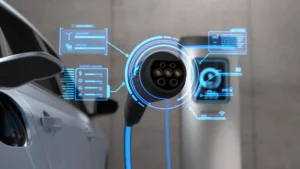
Home / EV Charging News / Electric Car Charging Stations for Remote and Off-Grid Locations
As the wheels of sustainable transportation turn, the quest for electric vehicle charging infrastructure extends to the far reaches of remote and off-grid locations. Here, where the conventional power grid fades away, a unique set of challenges and innovative solutions emerge, reshaping the narrative of sustainable mobility in areas previously untouched by electrification.
Establishing electric car charging stations in remote locations unveils an array of challenges. The absence of a reliable power grid stands as the primary hurdle, demanding inventive solutions to overcome the power deficit and pave the way for electric mobility in areas traditionally considered beyond the reach of such advancements.
In response to the power deficit, innovative solutions emerge, each harnessing the bounty of nature’s resources. The integration of solar power becomes a beacon of sustainability, with photovoltaic panels capturing and converting sunlight into electricity. In wind-swept landscapes, wind turbines come into play, transforming the kinetic energy of the wind into a clean and renewable power source, independent of the conventional grid.
Beyond power generation, the storage of electricity emerges as a critical consideration in remote charging infrastructure. Traditional grid-independent solutions, such as advanced battery technologies, gain prominence. These batteries serve as reservoirs, storing excess energy generated during optimal conditions and ensuring a steady power supply for electric vehicle charging during periods of low energy production.
In remote areas, establishing a robust and reliable connectivity infrastructure becomes imperative for the effective operation of electric car charging stations. Smart grid technologies play a pivotal role, enabling real-time monitoring and management of charging stations. This integration allows for dynamic adjustments based on energy availability, optimizing the use of renewable sources and ensuring a seamless charging experience.
Beyond the technological challenges, successful implementation of remote charging infrastructure requires community engagement. Local partnerships and educational initiatives foster acceptance and understanding of sustainable practices. By involving local communities in the transition to electric mobility, a sense of shared responsibility emerges, contributing to the long-term success and sustainability of these initiatives.
The establishment of electric car charging stations in remote locations is more than a technological feat; it’s a testament to the potential for local solutions to have a global impact. By tailoring strategies to the unique characteristics of each region, we not only overcome technical challenges but also cultivate a model for sustainable development that can be replicated in diverse landscapes worldwide.
One of the defining features of remote charging infrastructure is its resilience in the face of adversity. Whether facing extreme weather conditions, geographical isolation, or a lack of traditional resources, these charging stations showcase adaptability and resilience. This resilience not only ensures the uninterrupted availability of electric vehicle charging but also contributes to the overall sustainability of the local energy ecosystem.
The deployment of electric car charging stations in remote areas brings with it economic opportunities and job creation. As communities actively engage in the installation, maintenance, and operation of these charging stations, a new wave of employment opportunities emerges. This not only fosters economic growth but also nurtures a sense of ownership and pride within the local workforce.
The advent of electric vehicle charging stations empowers remote communities by providing them with access to modern and sustainable transportation. This access is not just about mobility; it’s about connectivity, opening doors to economic, educational, and healthcare opportunities that were once constrained by geographical isolation. Electric vehicles become catalysts for transformative change, enhancing the quality of life in remote areas.
Government support plays a pivotal role in the success of electric car charging infrastructure in remote locations. Policies that incentivize the adoption of renewable energy sources, offer grants for charging station installations, and prioritize the development of smart grid technologies create an enabling environment for sustainable initiatives. Government collaboration with private enterprises further accelerates the deployment of these critical infrastructure projects.
As electric car charging stations become part of the landscape in remote areas, they serve as educational platforms. By showcasing the integration of renewable energy, storage solutions, and smart grid technologies, these stations inspire future generations. The understanding and acceptance of sustainable practices become ingrained in the community fabric, creating a legacy of environmental stewardship for years to come.
In conclusion, the establishment of electric car charging stations in remote and off-grid locations goes beyond the immediate benefits of sustainable mobility. It leaves a lasting legacy—a legacy of resilience, economic empowerment, and environmental stewardship. As we navigate the uncharted territories of remote charging infrastructure, we are not just powering up electric vehicles; we are lighting the way for a sustainable future in the most remote corners of our planet.



